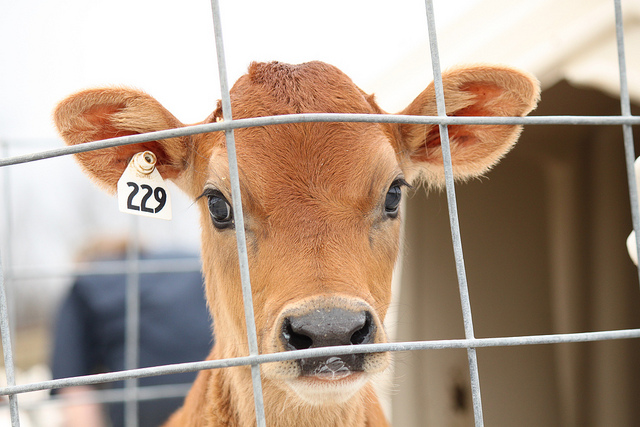If Jimmy Kimmel was getting emotional over the slaying of a chicken or a cow instead of a lion—would we be just as enraged?
Most likely not.
It would seem ridiculous.
Our connection to animals is influenced by the stories we’re told about them. Think about the books we read and the films we watched as children. Where do you see cows? On old McDonald’s farm, seemingly apathetic, chomping grass.
Where are lions? They’re returning to pride rock, they’re kings of Narnia, they’re the iconic symbol of MGM, they’re the feared and respected friend of Haley Joel Osment, they’re the loyal protectors and kings of their jungle.
We award anthropomorphic features to some animals and not others. Bears are protective, dogs are loyal, birds are free, horses are intuitive and lions are leaders. Yet animals like chickens, turkeys, sheep, goats, cows and pigs lack an identity other than “farm animal” or “food.”
In order to rationalize eating or the suffering of particular animals, our brains require the absence of a personality or a story. For example, pigs provide us with protein. But so could dogs. However, the thought of eating a dog is repulsive and unethical. This is because in our culture, dogs have been awarded the role of loyal companion and relentless rescuer. Rin Tin Tin, Lassie, Shadow and Chance, Balto, Old Dan and Little Ann, Beethoven, Old Yeller, Pongo, Snoopy, Clifford, Wishbone, Lady and Tramp, and Shiloh are all characters we have come to fondly adore and have helped shape or perception of dogs from as early as our childhood and adolescence.
Further, when we give an animal a name, we become more inclined to empathize with it. For example, if there were two articles, side by side, one titled “Elephant Poached Outside of African Park” and the another article as “Bindi the Elephant Poached Outside of African Park” we’d be more likely to read about Bindi rather than the elephant without a name. And although both deaths are equally as tragic, we feel more attached to something we’ve given an identity to.
In fact, there have been endless articles of rhinos, elephants and lions that have been poached in Africa. And most people, when asked to recall details about these other horrible incidents, are unable to offer any insight as to who killed the animal or how the animal was killed.
Then we have Cecil.
We know the name of the hunter, the hunter’s face, the hunter’s profession, where the hunter lives, what he does for a living, where his office is located, how much he paid to kill the animal and we know his method of killing. We rightly express grief for this lion because we have brought him closer to humanness by giving him a name. Having a name grants an identity, and ultimately implies that there is a story. It is in our nature to empathize with reflections of ourselves. We see beauty and qualities in others because we ourselves possess those same things.
Bringing it back to childhood roots, think about a dog you may have found wandering your neighborhood when you were growing up. Your parents probably warned you not to name it in fear that you would become attached. Think about a stuffed animal that you used to adore and carry around. You gave it a name and, chances are, you not only remember that name but also remember your love for that inanimate object. Even our parents and childhood selves knew that a name established a foundation for a bond.
So what if our burgers were served to our tables with the cow’s name and story attached to it? It would be very uncomfortable. So let’s ask ourselves why. Why don’t we care that chickens are exempt from the USDA’s Humane Methods of Slaughter Act? Why are horses awe-inspiring spirits and cows kind of just eat grass? How many animals were slaughtered in farms at the same time Cecil was wrongfully killed in Africa?
We know exactly how Cecil died, but do we know exactly how the cow died that became our meal? Why do we avoid that story? These questions are not meant to impugn the death of a lion or to say that it doesn’t deserve our sadness, but it is meant to inspire a question of where our respect for one life over another originates.
If all lives do in fact deserve our equal respect, let’s take the time to learn their stories. Let’s take the time to learn what these animals endure to make it to our plates. Let’s read about what the USDA defines as “organic.” We might find that words like “free-range” and “cageless” do not account for much when it comes to the quality of their environment or the amount of space these animals are given.
We might also find that the word “natural” means absolutely nothing. In what ways are all these animals physically altered without anesthetic? And although they may be difficult stories to read, we might find that through our exploration, these animals do have identities.
Maybe their stories just need to be told with a bigger voice—to be seen with wider eyes.
~
Relephant Read:
Eating Cows but Loving Dogs.
~
Author: Katie Reed
Editor: Alli Sarazen
Photo: egrego2/Flickr











Read 14 comments and reply